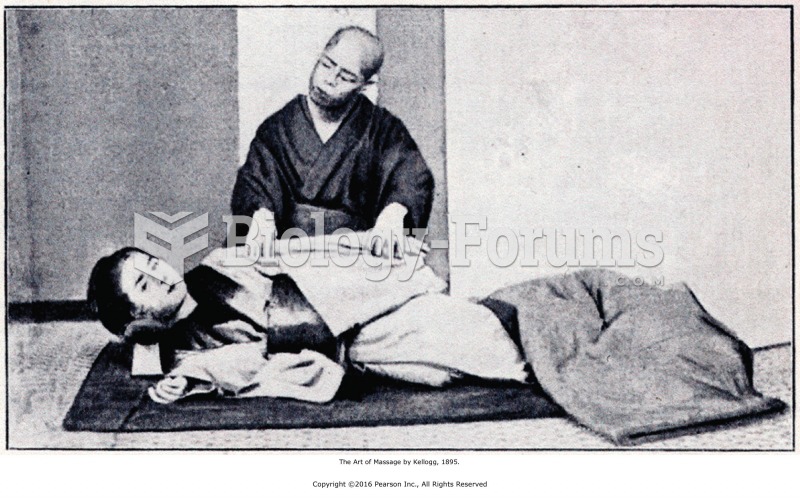|
|
|
On average, the stomach produces 2 L of hydrochloric acid per day.
Adults are resistant to the bacterium that causes Botulism. These bacteria thrive in honey – therefore, honey should never be given to infants since their immune systems are not yet resistant.
The toxic levels for lithium carbonate are close to the therapeutic levels. Signs of toxicity include fine hand tremor, polyuria, mild thirst, nausea, general discomfort, diarrhea, vomiting, drowsiness, muscular weakness, lack of coordination, ataxia, giddiness, tinnitus, and blurred vision.
Children of people with alcoholism are more inclined to drink alcohol or use hard drugs. In fact, they are 400 times more likely to use hard drugs than those who do not have a family history of alcohol addiction.
Urine turns bright yellow if larger than normal amounts of certain substances are consumed; one of these substances is asparagus.
 The world has been horrified recently at a U.S. Congress so polarized and paralyzed that it cannot p
The world has been horrified recently at a U.S. Congress so polarized and paralyzed that it cannot p
 Many former slaves understood that illiteracy was an implement of bondage. The Freedmen’s Bureau bui
Many former slaves understood that illiteracy was an implement of bondage. The Freedmen’s Bureau bui





